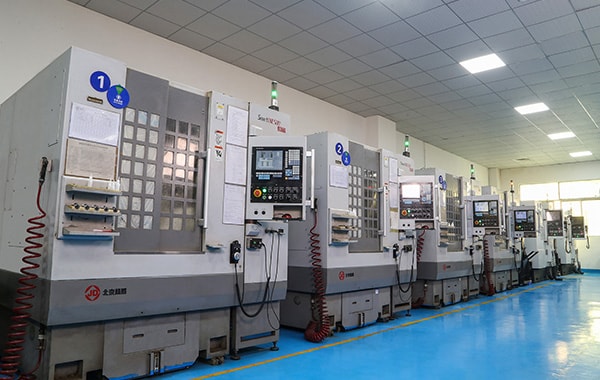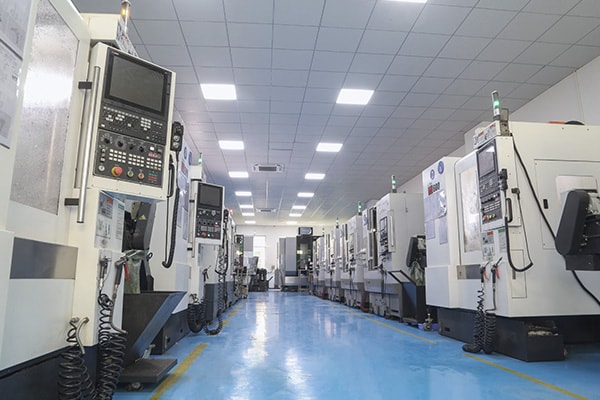CNC precision machining: a multi-dimensional exploration
Traditional machining methods often have difficulty achieving extremely tight tolerance requirements, especially for critical components that often have tolerance requirements as high as ±0.001 inches or even lower. CNC precision machining was born to meet this challenge. Through the synergy of precisely controlled CNC systems and high-performance cutting tools, CNC precision machining can achieve highly consistent and stable dimensional accuracy in mass production.
However, advanced equipment alone is not enough to fully realize the potential of precision CNC machining. Engineers and designers must also have a deep understanding of the processing processes, equipment configurations, material properties, and testing methods involved to maximize the benefits of this technology in practice.
1. What is CNC Precision Machining?
CNC precision machining is a manufacturing process built on computer numerical control (CNC) technology, enabling ultra-precise milling, turning, drilling, and other operations under strictly controlled conditions. Its fundamental objective is to achieve dimensional tolerances far exceeding conventional standards, commonly reaching ±0.005 mm or tighter, while also delivering exceptional surface finishes with Ra values down to 0.4 µm or below. This high level of precision allows for the flawless reproduction of complex geometries, but to accomplish this, it takes more than simply advanced machinery. A combination of precision CNC machines, high-performance cutting tools, rigorous process planning, and extensive engineering experience is essential to reliably achieve such demanding results.
2. The Impact of CNC Machine Tools on Precision Manufacturing
Modern high-precision CNC machine tools serve as the heart of precision manufacturing, thanks to their rigid structures, precision ball screw or linear motor drives, high-resolution feedback systems, and advanced thermal compensation capabilities. These technical features collectively establish a robust and stable foundation for producing micron-level tolerances with confidence. Furthermore, the introduction of five-axis simultaneous machining has dramatically expanded the possibilities of manufacturing complex surfaces, deep cavities, and irregular features, liberating designers from many of the geometric limitations of the past and opening new avenues for innovation.
3. Advantages of CNC Machining over Traditional Manufacturing
Compared with traditional manual or conventional mechanical machining, CNC machining represents a fundamental leap forward in manufacturing capability. By relying on program control, CNC processes virtually eliminate human error, allowing manufacturers to deliver high consistency across large production runs. Additionally, CNC systems easily handle the machining of complex three-dimensional contours that would be difficult or impossible for traditional processes to achieve. High-speed cutting, automatic tool changes, and extended unmanned operation boost efficiency dramatically, while program-based changeovers support flexible production for small batches and high-mix orders, enabling agile responses to market demands.

4. Advantages of Precision Machining over Ordinary CNC Machining
While conventional CNC machining already delivers significant advantages, CNC precision machining elevates these benefits to an entirely new level. It allows for micron-level tolerance control, achieving IT5 to IT7 or even higher tolerance grades that meet the strictest assembly and performance requirements. Precision machining also provides superior surface finishes with lower Ra values, reducing friction and wear to extend part life and enhance sealing performance. This technology can reliably manufacture micro-scale features such as tiny holes, fine threads, or sharp edges, while precisely controlling cutting forces and heat effects to preserve the performance characteristics of even the most challenging materials.
5. What Materials Are Suitable for CNC Precision Machining
CNC precision machining is compatible with a broad spectrum of high-performance engineering materials. For metals, common choices include aluminum alloys such as 6061 and 7075, stainless steels including 303, 304, and 316, titanium alloys like Ti6Al4V, as well as tool steels, brass, and copper. Among engineering plastics, materials such as PEEK, Delrin (POM), nylon (PA), PTFE, PC, and ABS are often used for their insulation, wear resistance, or low-friction properties. Additionally, the precision machining of advanced composites, such as carbon fiber reinforced polymers (CFRP), is becoming increasingly prevalent to meet evolving industry needs.
6. Main Applications and Industries for CNC Precision Components
Precision CNC components play an irreplaceable role across numerous high-end industries. In aerospace, they are used for critical engine parts, flight control components, and avionics brackets where extreme reliability and lightweight construction are paramount. The medical field relies on precision machining for surgical instruments, implants like bone screws and joint replacements, and vital components in diagnostic equipment that demand biocompatibility and ultra-high cleanliness. In optics and semiconductors, parts such as mirror mounts, laser housings, and wafer-handling equipment require nanometer-level accuracy and exceptional thermal stability. The automotive industry benefits from precision-manufactured high-performance engine parts, sensors, and electric vehicle drivetrain components. Furthermore, industrial automation depends on precision-manufactured robotic joints, high-accuracy guide rails, and servo system cores to maintain performance and durability.
7. CNC Precision Machining Services We Offer
Building on two decades of accumulated process know-how and problem-solving expertise, we are dedicated to delivering world-class, customized precision parts manufacturing solutions. Our core capabilities focus on micron-level tolerance control within ±0.005 mm, as well as the machining of complex, irregular geometries. We are equipped with imported high-precision five-axis machining centers, mill-turn equipment, and a complete suite of inspection tools, including coordinate measuring machines (CMMs), profilometers, and surface roughness testers, to guarantee the highest quality. Our material expertise ranges from aluminum and high-temperature alloys to advanced engineering plastics, ensuring superior results across a wide variety of applications. Supported by IATF 16949 and ISO 13485 certified systems, our processes offer full traceability to meet even the most rigorous standards. Backed by an experienced engineering team, we provide comprehensive support from design optimization (DFM) and process planning to mass production, empowering our clients with reliable, end-to-end precision manufacturing solutions.


